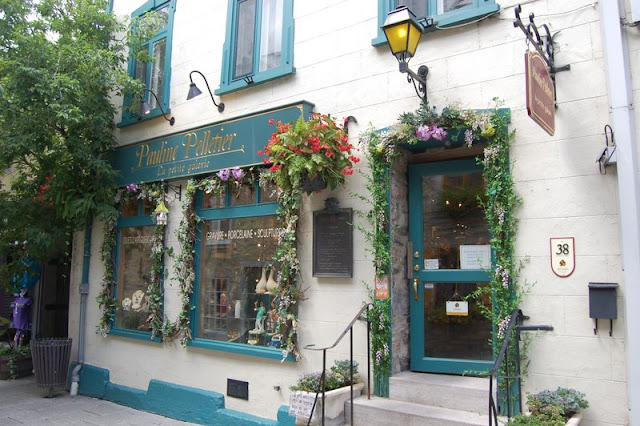Writing the last several posts was very healthy for me - it took a while before I had the perspective and emotional energy to talk about it. I'm so glad I did! And, I DO realize how fortunate I am to have this amazing opportunity to just travel and take it all in. All my life I have longed for this kind of freedom and now I have it! I think when we return from England I'll be entering the next phase of our RV adventure with a much lighter spirit, and hopefully, an RV home that is working spectacularly well in all respects :).
I wanted to leave you though, with the essay my mother wrote that started me down this path of discovery about her time as an evacuee to Wales. She was 15 when she wrote this. Here is her passport picture taken in June 1940, just before she returned to the U.S.
Evacuation
By Gwendolyn Simm
I awoke early on the morning of September 4, 1939, to the realization that today I was to set out on a new adventure in life. I was to be evacuated to a place I had never seen before in my life; it was Anglesey, Wales. I was to live with people I had not even set eyes on before.
At 10:30 a.m. on that same morning, three hundred other children and I were assembled on the platform of Lime Street Station, waiting for our train to arrive. Among the many crowds of people waiting there, I noticed little children with luggage labels tied to their coats as identification cards, clinging closely to their mothers’ skirts. Others were happily awaiting their first train ride or perhaps their first journey away from the smoky towns. The whistle blew! Slowly the heavily laden train steamed out of the station – midst many wavings of handkerchieves and good-byes.
We passed through miles upon miles of smoky towns: Liverpool, Birkenhead, and Chester, then small towns and villages, and finally we reached green fields and meadows.
As it was still September and summer was not yet over, the sun was with us too, and looked resplendent, shining on the winding brooks which we passed on our way.
The latter part of our journey consisted of a train ride around the feet of many mountains, in between which lay a stretch of water known as the Minai Straits. It was on the edge of this Strait that I was to make my future home. I always remember stopping at a very small Welsh junction the name of which caused us much laughter, for there were thirty-nine letters in the name. It was Llanfairpwlgwyngil-go-gery-tyn-silo-so-go-goch.
We arrived at our destination, which was a town called Beaumaris, late in the afternoon, and were taken to sit on the waterfront while some were taken to their new homes – billets, as they are termed. Being fortunate, I was in one of the first groups to go. An old-fashioned house right on the waterfront, in which an old lady and her maid lived, was to be my new home.
I should now like to tell you something about my life in the very small town of Beaumaris. In the summer time we used to play games on the stretch of green grass before my home. We would take long walks through the beautiful Welsh countryside. In the morning, we would rise early enough to swim in the icy waters of the Strait, or pick blackberries while the dew was still upon them.
Winter time for us, and throughout England, was long, cold and dismal. We did our homework by the light of a paraffin oil lamp. Fortunately for us, our home possessed a large library. In that room, we spent many winter hours reading famous old novels and plays. At night we used to sit by the dining room window and see the silvery moon crested on the snow-capped mountains, or see them reflected in the calm still waters beneath.
It was here in this house and village that I spent ten very happy months of my life, and when I go back to England, I know I shall find that same old house and many of those friends, for, “There will always be an England.”






































